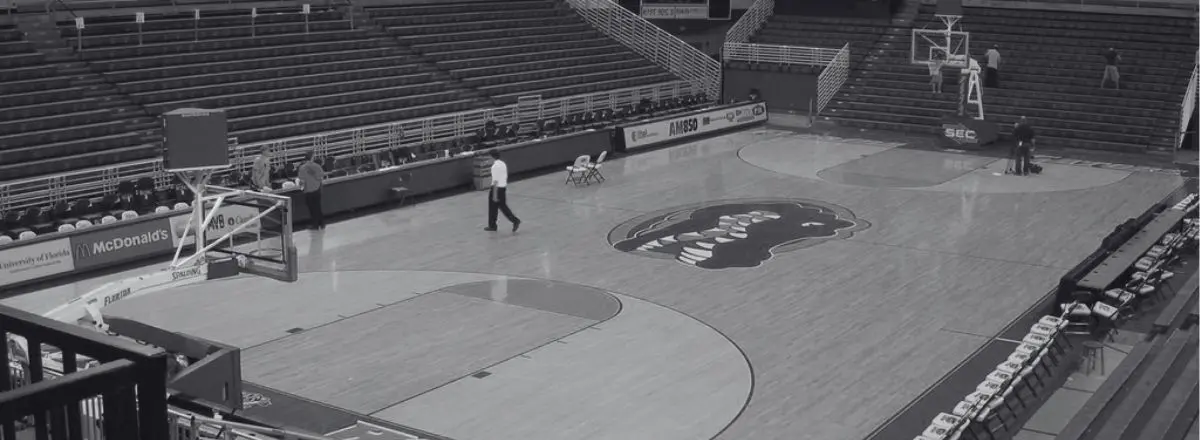The United States Supreme Court recently breathed new validation into the Seminole Tribe’s Florida sports betting compact with the Sunshine State. And the development may have massive ripple effects throughout the industry.
To be sure, the United States Supreme Court refused to hear the years-old Florida sports betting case brought to them by West Flagler Associates, a casino and racetrack operator in the Sunshine State. Technically, this isn’t akin to offering a concrete decision. But it did put another obstacle in front of West Flagler, if not end their push altogether. In doing so, the United States Supreme Court (SCOTUS) added a layer of validity to Seminole Tribe sports betting operations. Essentially, SCOTUS made a decision by not making a decision.
This course of (in)action is huge for the Sunshine State. Not only will sports betting in Florida continue, but it reaffirms the Seminole Tribe’s monopoly over gaming. On top of that, it allows them to keep operating their Hard Rock Florida sports betting app in what’s considered a controversial manner.
Currently, the Seminole Tribe sports betting site accepts wagers from anywhere inside the Sunshine State—even if the customer isn’t on tribal land. This is a point of contention for West Flagler. They argue it violates the Indian Gaming Regulatory Act (IGRA), which mandates any gaming transactions take place on tribal property. However, the Seminoles have in turn argued that because their Florida mobile sports betting site servers are on tribal property, the app is an extension of their tribal land.
Barring another surprise development inside the state’s court system, this logic is going to hold up. But while the sports betting laws in Florida may be settled (or close to it), this interpretation of the IGRA is going to impact other markets—potentially a ton of them.
Florida Sports Betting Expansion Remains Possible
Let’s stick with the Sunshine State first. Many have interpreted SCOTUS’ refusal of the case to mean sports betting expansion is a long shot. The Seminoles’ gaming compact grants them exclusivity. And allowing top online sportsbooks in the United States to enter the market creates what seems like unnecessary competition.
This viewpoint could end up being correct. Hard Rock, the Seminoles’ partner, may remain the only sports betting option available to Floridians. But the tribe does have the power to expand operations. As ESPN’s Doug Greenberg wrote:
“However, as outlined in the compact and authorized by IGRA, the exclusivity provision in the tribal-state compact does not prevent the tribe from making deals with commercial entities such as DraftKings or FanDuel. The compact does say that the tribe must take at least 60% of revenue as part of any agreement to break the exclusivity, making the economics vastly unappealing to any non-tribal entities.”
Like Greenberg mentions, the revenue split doesn’t favor any corporations looking to link up with the Seminoles. But 40 percent of something is better than 100 percent of nothing. This may be the only way for top online sportsbooks in the USA to enter the Florida sports betting market. At least one or two operators may invariably wind up caving to an unfavorable revenue split.
Plus, it helps that the Sunshine State sports betting market is among the most lucrative. As of now, only sports betting in New York has the case to be considered more popular. Until sports betting in California or sports betting in Texas go live, Florida will remain, at worst, a top-two market.
Here’s How SCOTUS’ Decision Could Impact States Without Sports Betting
Speaking of Texas and California, they are among the states whose legal sports betting pushes could be affected by Florida’s situation. California, in particular, is the place everyone has an eye on. As Samir Patel, an attorney at Miami law firm Holland & Knight, told Greenberg:
"[The California tribes] have a clear road map now of how to actually get online sports gambling under their control, and that is using the Florida model, having a governor who is willing to participate, and having the governor implement a new law. It would be copying and pasting what Florida did, in that, creating the law on the books that deems bets made off tribal land coming to rest on a server on tribal land will be deemed a bet made on tribal land."
As Greenberg goes on to note, this is not a perfect analog. The legalization of California online sports betting will require voter approval no matter what. But it should be easier to sell an initiative to constituents with this model. In theory, California tribes can now offer the chance to keep sports betting revenue entirely within the state while also still ensuring online operations are available to everyone.
Other states could look to the Florida sports betting model as a resource to legalize or expand current operations. Greenberg mentions sports betting in Alabama as a situation to keep watching. And rest assured, we will cover the fallout in other states moving forward.
But right here, right now, one generalization is clear: The battle over Florida sports betting is over. At the very least, it has reached an indefinite pause. Elsewhere, though, the debates will continue. And the situation in Florida is, on some level, going to impact every single one of them.
Take a look at this list of the top online sportsbooks so you can find one that works for all of your sports betting needs:
-
 50% bonus up to $250Play Now
50% bonus up to $250Play NowT&C apply, 18+, Play responsibly
-
EXCLUSIVE BONUS
 125% up to $2,000Play Now
125% up to $2,000Play NowT&C apply, 18+, Play responsibly
-
 50% up to $200Play Now
50% up to $200Play NowT&C apply, 18+, Play responsibly
-
 150% up to $225Play Now
150% up to $225Play NowT&C apply, 18+, Play responsibly
-
 50% bonus up to $1000Play Now
50% bonus up to $1000Play NowT&C apply, 18+, Play responsibly











